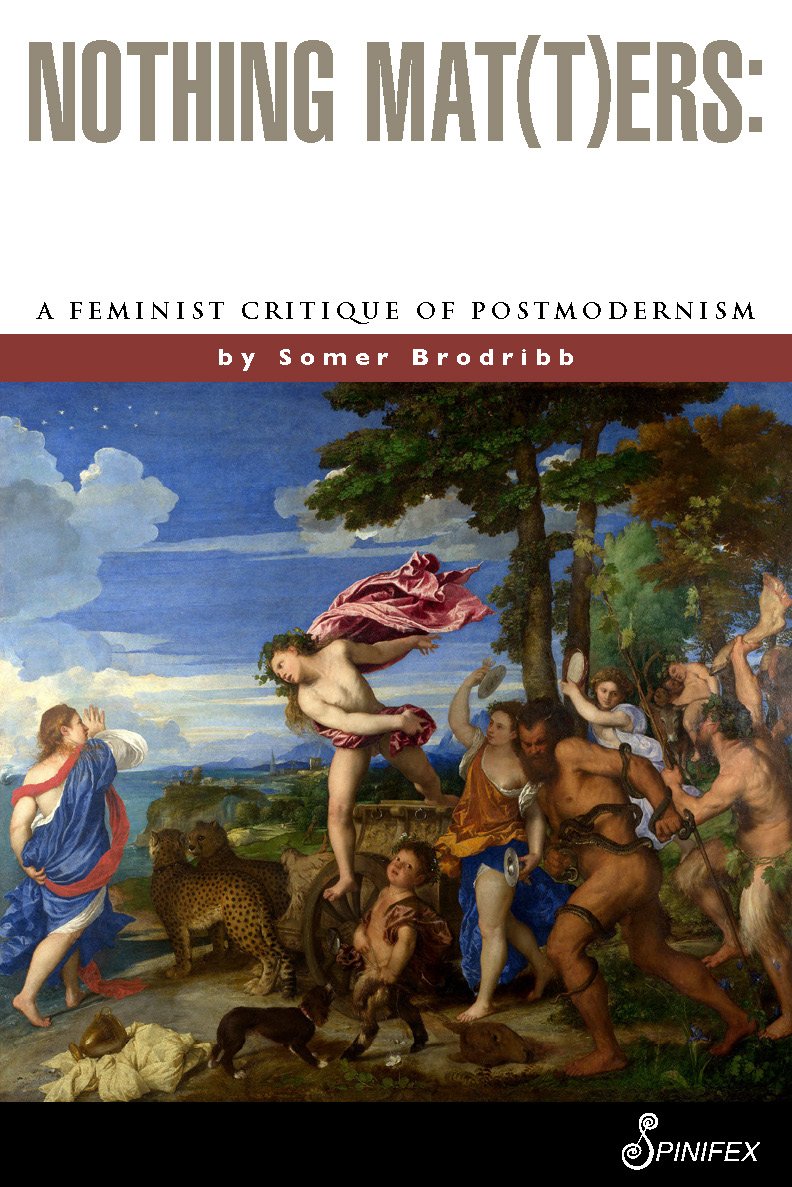This is an iconoclastic work brilliantly undertaken by Somer Brodribb. Nothing Mat(t)ers magnificently shows that “postmodernism is the cultural capital of late patriarchy. It is the art of self-display, the conceit of masculine science and genetic engineering in an ecstatic Nietzschean cycle of stasis.” —Andrée Michel, Author, Le Féminisme
Nothing Mat(t)ers encapsulates in its title the valuelessness of postmodernism. Somer Brodribb has written a brave and witty book demolishing the gods and goddesses of postmodernism by de-constructing their method and dec-entering their subjects and, in the process has de-constructed de-constructionism and de-centered de-centering. This is a long-awaited and much-needed book from a tough-minded, embodied and unflinching scholar. —Janice Raymond, Author, A Passion for Friends and Doublethink
‘An eloquent work, Somer Brodribb gives us a feminist critique of postmodernism … [and] in the very form and texture of the critique, she literally creates new discourse in feminist theory.’ —Kathleen Barry, Author, Unmaking War, Remaking Men
If one has any interest in ‘postmodernism’ whatsoever, Somer Brodribb’s excellent Nothing Mat(t)ers is required reading … This book needs to be read and pondered not because it has the answers or is complete in its purview (it is remarkably thorough in regard to the theory and theorists it addresses), but because Brodribb raises the vital question that postmodernism has slowly erased under the weight of the critique of ideological structure-what matters. —David Clippinger, Rain Taxi
This brave, brilliant (and funny!) book by a Canadian feminist is the antidote for intellectual toxicities caused by decentered deconstructionist detritus. The Plucky Wench of the Year Awards definitely goes to Brodribb, for proving the emperor has no clothes or brains. —Ms. Magazine
Table of Contents
Preface
Introduction
The Labyrinth
Chapter One
A Space Odyssey
Chapter Two
Nothingness and De/generation
Chapter Three
Existence and Death
Chapter Four
Neutrality and De/meaning
Chapter Five
Lacan and Irigaray: Ethical Lack and Ethical Presence
Chapter Six
Out of Oblivion
References
Permissions
Index

